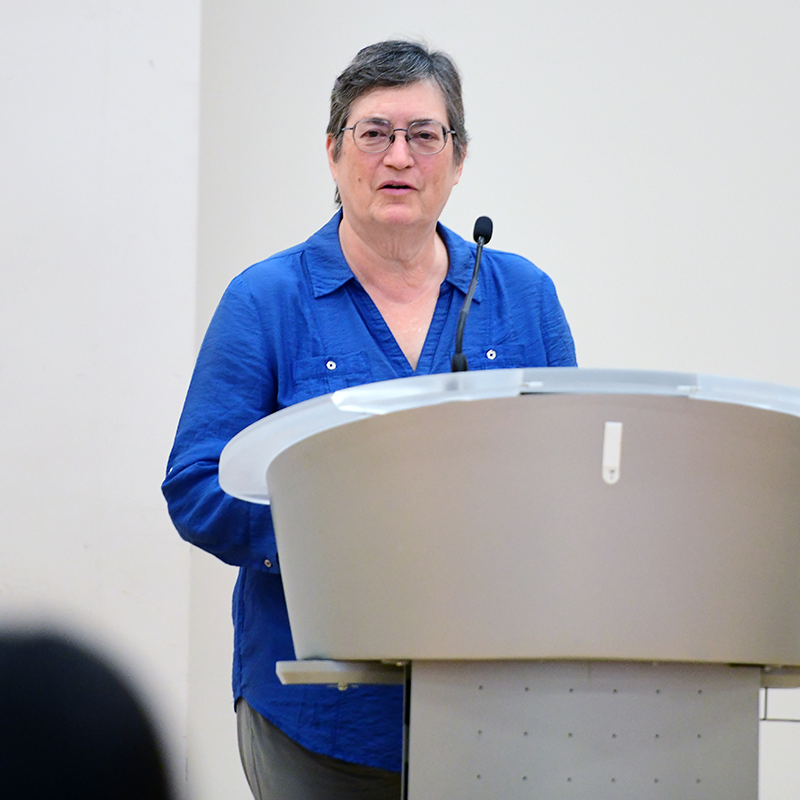News Story
CapWIN Delivers Driver’s License Photos to Police Officers in the Field
COLLEGE PARK—Working in close cooperation with Maryland’s Motor Vehicle Administration (MVA) the Maryland State Police, and Baltimore City Police, the Capital Wireless Information Net (CapWIN) has successfully integrated driver’s license photos into its mobile communications software for first responders. Certified law enforcement officers will now receive driver’s license photos via mobile computers (laptops) in their cruisers as part of their standard “query” of automobile license plates. This is the first time that MVA photos have been made directly available to police officers in the field.
“Thanks to the cooperation of MVA and the innovation of CapWIN, gone are the days of a police officer receiving only a radio broadcast of the height, weight, and hair and eye color of an individual,” Colonel Terrance B. Sheridan, Superintendent of the Maryland State Police said. “Now, Maryland police officers will be able to immediately receive a color photograph to assist them in identifying someone while still on a traffic stop or at a crime scene. This is a significant step forward and proof that Maryland state agencies continue to work together to enhance the safety of our citizens, the safety of our police officers, and our homeland security,” Sheridan continued.
In recent years, Maryland’s MVA has been working to make driver’s license photos more easily accessible to law enforcements agencies across the State. “We are extremely pleased to support the public safety community by providing them with mobile access to these photos,” said John Kuo, MVA Administrator. “It is critical in today’s security environment that all public agencies work together to effectively and efficiently share critical data, thereby contributing to homeland security initiatives. The MVA is a full partner in these efforts, and we are delighted to have worked with the Maryland State Police and the CapWIN program at the University of Maryland to make this happen,” continued Kuo.
The technical solution developed for CapWIN will also compliment MVA’s participation in a nationwide effort sponsored by the American Association of Motor Vehicle Administrators (AAMVA) designed to standardize the sharing of driver’s license photos across the country. Photos are currently available to all law enforcement officers in Maryland using CapWIN. Later this year, law enforcement officers using CapWIN in Virginia and D.C will also be able to access Maryland MVA photos during traffic stops involving Maryland drivers based on pending agreements between Virginia law enforcement agencies and the Maryland MVA.
CapWIN’s mobile software already provides access to photo mug shots available through Virginia’s Criminal Information Network (VCIN). Virginia is also working to provide driver’s license photos to CapWIN users in 2007. “The integration of Maryland’s MVA photos represents an important addition to the many operational datasets CapWIN is working to deliver to our first responders in the field,” said Tom Henderson, CapWIN’s Executive Director. “CapWIN’s mission is to connect first responders in the field to each other and to the operational data that they need to work most effectively. We are delighted to serve as the bridge that connects the first responder community to this important information and to facilitate interoperable communications in a way that has never been done before,” continued Henderson.
About CapWIN
The Capital Wireless Information Net (CapWIN) is a regional Public Safety and Transportation Coalition supported by the Department of Civil and Environmental Engineering’s Center for Advanced Transportation Technology (CATT) at the University of Maryland’s A. James Clark School of Engineering. Developed and governed by a regional group of public safety and transportation officials, the CapWIN system includes an application suite enabling: 1) incident coordination across agencies, regions, disciplines and at all levels of government; 2) secure one-to-one and group messaging as well as a skill-based searchable directory of individual first responders; and 3) access to operational data/resources, including regional transportation data and multiple state/federal law enforcement criminal databases, driver’s license photos, state and federal mug shots of wanted persons, violent gang members, and registered sex offenders.
As of today, approximately 3000 first responders from 69 agencies in Maryland, Virginia, and the District of Columbia can now access the CapWIN system.
For more information regarding CapWIN, please contact Carly Keane at 301.403.4601 or at ckeane@umd.edu. Please visit the CapWIN website at http://www.capwin.org and the CapWIN Training Website at http://www.capwintraining.org.
Published October 31, 2007









